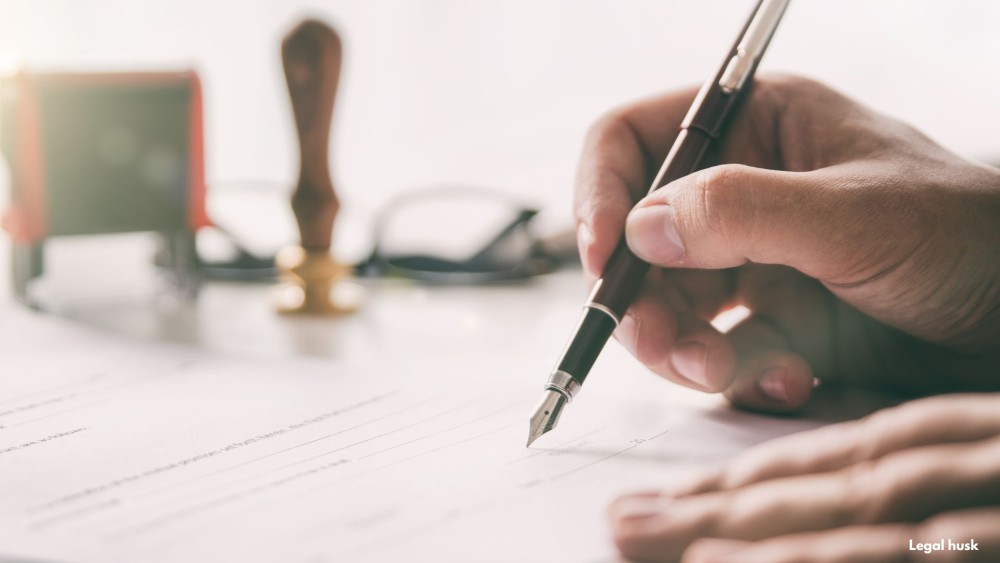
Your Answer can be a powerful tool for negotiation. Learn how to use it strategically to open doors for early settlement discussions.
The Answer is often viewed as the initial step in defending a lawsuit—but it can also be an opportunity to open settlement discussions early. How you respond, what you admit, and what defenses you raise can send strong signals to the opposing party about your client’s position, the strength of their case, and your willingness to engage in settlement talks.
In this article, Legal Husk explores how to use your Answer strategically to lay the groundwork for early settlement and leverage it to reach a favorable resolution before costly litigation ensues.
✅ When you file an Answer, denial-focused responses can signal to the opposing party that you’re confident and ready to fight:
Deny allegations that are central to the plaintiff’s claims (e.g., breach of contract, negligence, damages).
Stay firm on critical facts while signaling that you’ll require them to prove their case.
🎯 Strong denials can convince the plaintiff that their chances of winning at trial aren’t as strong as they may have thought—creating leverage for settlement talks.
✅ Introducing affirmative defenses in your Answer isn’t just about protecting your client’s rights—it’s a way to show the opposing party that their case may have significant legal hurdles:
Defenses like lack of standing, statute of limitations, and failure to mitigate damages demonstrate weaknesses in the plaintiff’s case.
These defenses can prompt the other side to reconsider the strength of their claims and may encourage settlement before proceeding further.
Example:
“Defendant asserts that Plaintiff’s claims are barred by the statute of limitations, as the alleged incident occurred over three years ago.”
🎯 Affirmative defenses offer your client a stronger negotiating position and give the plaintiff a reason to reconsider pushing the case to trial.
✅ While you should avoid unnecessary admissions, limited admissions can be valuable tools in settlement negotiations:
Admit facts that are undisputed but deny the legal consequences of those facts.
By doing so, you reduce the issues in dispute, focusing negotiations on the most critical areas and showing the plaintiff you are willing to compromise.
🎯 Strategic admissions can help narrow the scope of the litigation and make settlement negotiations more manageable.
✅ When you file your Answer, consider attaching a settlement proposal or inviting the opposing party to consider alternative dispute resolution (ADR):
Use the Answer as an opportunity to initiate dialogue—rather than just responding defensively.
Offer an early settlement discussion, showing that you’re open to resolution without prolonged litigation.
Tip: Include a brief statement in your Answer:
"Defendant is open to discussing a settlement and is willing to engage in mediation to resolve the matter."
✅ Discovery is often the most expensive and time-consuming part of litigation. By strategically limiting the scope of discovery early in your Answer:
File a motion to stay or delay discovery, especially if you believe it will be overly burdensome or if settlement discussions are imminent.
Propose a tailored discovery plan to avoid unnecessary document production and depositions.
🎯 Limiting the discovery process can help reduce litigation costs and provide more room for settlement negotiations, which may be more appealing to the opposing party.
✅ Be aware of the plaintiff’s potential settlement leverage, and use your Answer to counteract that:
If the plaintiff’s case is weak, highlight factual or legal weaknesses in your Answer to undermine their settlement position.
If the plaintiff has a strong case, acknowledge the strengths and work out a win-win settlement proposal.
🎯 Understanding the plaintiff’s leverage and preparing your Answer accordingly can position you for mutual agreement without a costly trial.
✅ When drafting your Answer, try to set up terms that could lead to settlement:
Raise compromise-oriented defenses, like suggesting that certain claims could be resolved with financial restitution or non-monetary remedies (e.g., reformation of contract terms).
Avoid inflammatory language that could escalate tension and make settlement difficult.
Example:
“Defendant is open to resolving the dispute through a financial settlement or modification of the existing agreement to ensure continued collaboration.”
In a product liability case, the defendant uses their Answer to open settlement talks:
The Answer denies liability for the alleged defects, but admits that the product may have contributed to the injury in some circumstances.
The defendant raises affirmative defenses like failure to mitigate damages and contributory negligence, creating leverage for a settlement discussion.
A settlement offer is included with the Answer, proposing mediation.
Result: The plaintiff sees the case may be costly and uncertain, so they agree to mediation early in the process, avoiding lengthy litigation.
Your Answer isn’t just a defensive filing—it’s an opportunity to shape the future of the case. By strategically crafting your response, you not only protect your client’s rights, but you can also leverage the Answer to open doors for early settlement. This can save both time and money for all parties involved, leading to a more efficient resolution.
At Legal Husk, we help you draft Answers that do more than respond—they pave the way for resolution, whether through litigation or settlement.
Need help crafting an Answer that opens doors for early settlement? Legal Husk ensures that your response isn’t just legally sound, but strategically positioned for the best outcome.
📌 Want to negotiate a settlement without going to trial?
👉 Visit:
🔗 legalhusk.com
🔗 legalhusk.com/services
🔗 legalhusk.com/services/civil-litigation
🔗 legalhusk.com/about-us
Strategic Answers. Smart settlements. Legal Husk.
📩
Ready for a court-ready Answer at a predictable price? Contact Legal Husk and let us draft your next litigation response with precision and clarity.eries?
Whether you are dealing with a complex family matter, facing criminal charges, or navigating the intricacies of business law, our mission is to provide you with comprehensive, compassionate, and expert legal guidance.